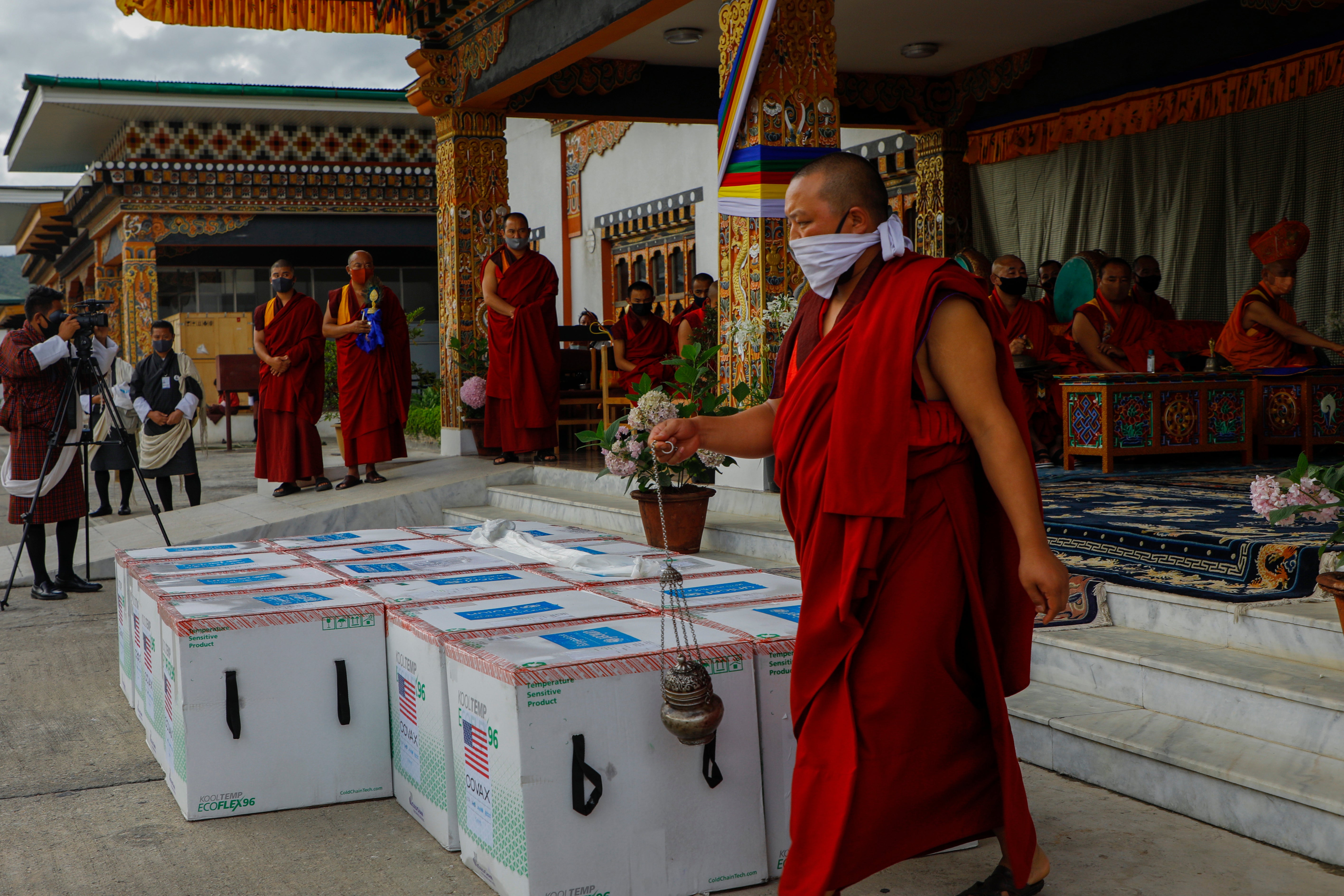Bhutan has fully vaccinated 90% of its eligible adult population in just seven days
‘The Himalayan kingdom can be a beacon of hope to a region that is on fire,’ said Unicef

Your support helps us to tell the story
From reproductive rights to climate change to Big Tech, The Independent is on the ground when the story is developing. Whether it's investigating the financials of Elon Musk's pro-Trump PAC or producing our latest documentary, 'The A Word', which shines a light on the American women fighting for reproductive rights, we know how important it is to parse out the facts from the messaging.
At such a critical moment in US history, we need reporters on the ground. Your donation allows us to keep sending journalists to speak to both sides of the story.
The Independent is trusted by Americans across the entire political spectrum. And unlike many other quality news outlets, we choose not to lock Americans out of our reporting and analysis with paywalls. We believe quality journalism should be available to everyone, paid for by those who can afford it.
Your support makes all the difference.Bhutan has fully inoculated 90 per cent of its eligible adult population against Covid-19 within a week, an achievement that the Unicef has hailed as a vaccine “success story” in one of the world’s remotest regions.
The Himalayan kingdom of Bhutan with a tiny population of 800,000 administered 454,000 shots in the last seven days, which is more than 85 per cent of its adult population, its health ministry said on Tuesday.
The mass vaccination drive was applauded by Unicef representative Will Parks, who called Bhutan a “beacon of hope” in Asia, which is struggling with vaccine hesitancy and subsequently slow rollout for its huge population.
He said it is “arguably the fastest vaccination campaign to be executed during a pandemic.”
Bhutan started its vaccination drive in April after neighbouring India sent the first set of 550,000 shots of AstraZeneca vaccines. It ended up using all the shots to inoculate its population with the first dose.
But the vaccination drive received a setback after India, a major supplier of the AstraZeneca shot, halted exports after it struggled to meet the rising demand at home and infections surged.
Thimpu made an appeal for donations from countries and the World Health Organisation after the time gap between the first dose and second dose grew and concerns mounted.
Bhutan again kicked off the drive last week after half a million doses of Moderna vaccine were donated by the US under the Covax program, a Covax, WHO and CEPI-led initiative for equitable distribution of vaccines.
Another set of 250,000 shots of AstraZeneca were also received from Denmark in mid-July.
“Our aim is to achieve herd immunity among our population in the shortest possible time to avert a major public health crisis,” Dechen Wangmo, Bhutan’s health minister, told The Associated Press.
The country is yet to receive shots of Pfizer and Sinopharm from Croatia, Bulgaria, China and several others.
The government has also purchased around 200,000 shots of Pfizer that would be delivered in later months of 2021.
Bhutan’s small population helped in achieving the milestone that is yet to be achieved by far more advanced western countries with more resources.
Bhutan also sent a strong and effective messaging from top officials to the people and had an established cold chain storage system, experts noted.
Dr Sonam Wangchuk, a member of Bhutan’s vaccination task force, said an army of more than 3,000 strong health workers at 1,200 vaccination centres, as well as volunteers, helped in ensuring that vaccines reached the remotest parts of the country.
“In some cases, health workers trekked for days through landslides and pouring rain to reach extremely remote villages atop steep mountains to administer doses to those unable to get to a centre,” he said.
Mr Parks noted that some 22,000 citizens who volunteered for the initiative were also crucial in raising awareness, dispelling misinformation and helping in mass screening and testing.
Bhutan’s success story is in contrast to several South Asian nations like India and Pakistan struggling to ramp up their vaccination rates where the drive is marred by vaccine hesitancy.
Additional reporting by agencies
Join our commenting forum
Join thought-provoking conversations, follow other Independent readers and see their replies
Comments